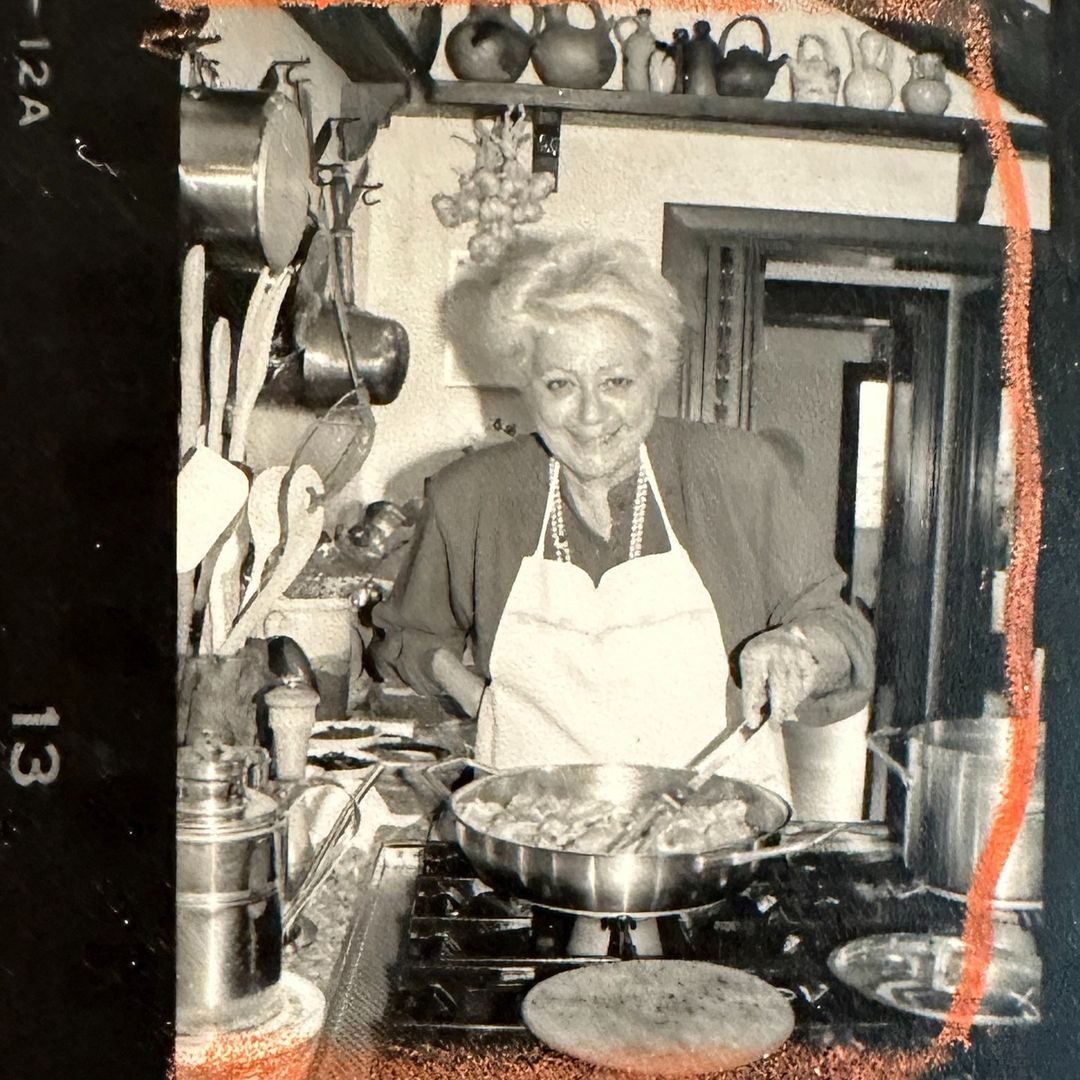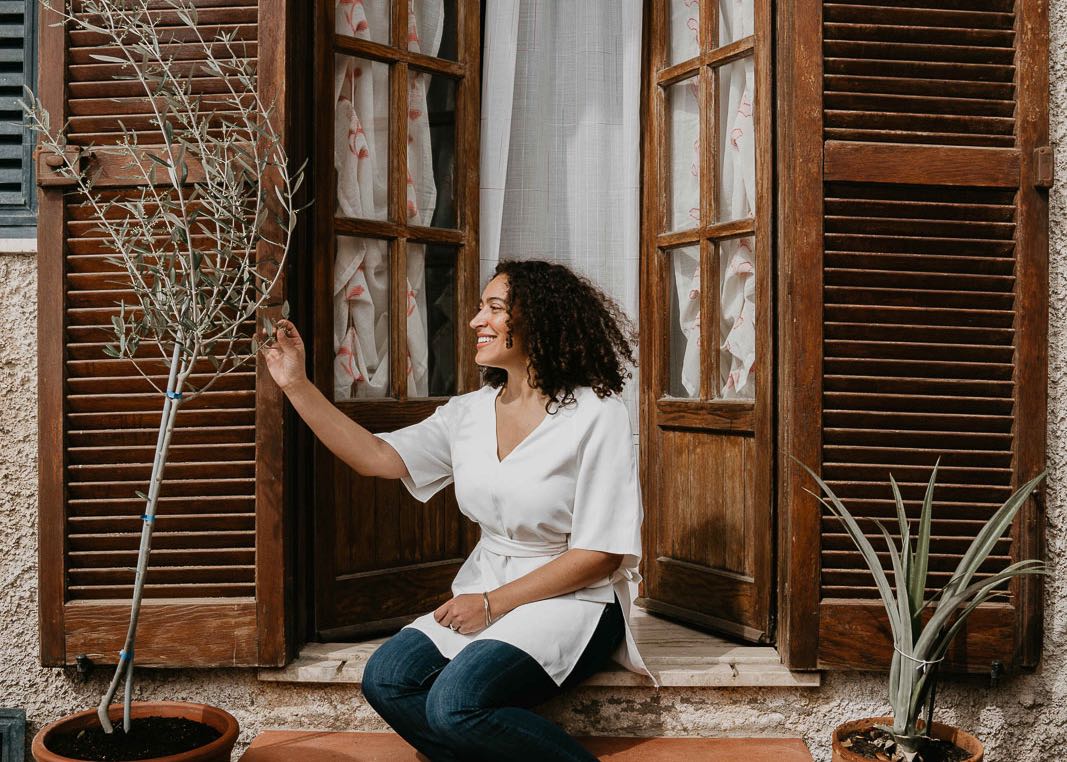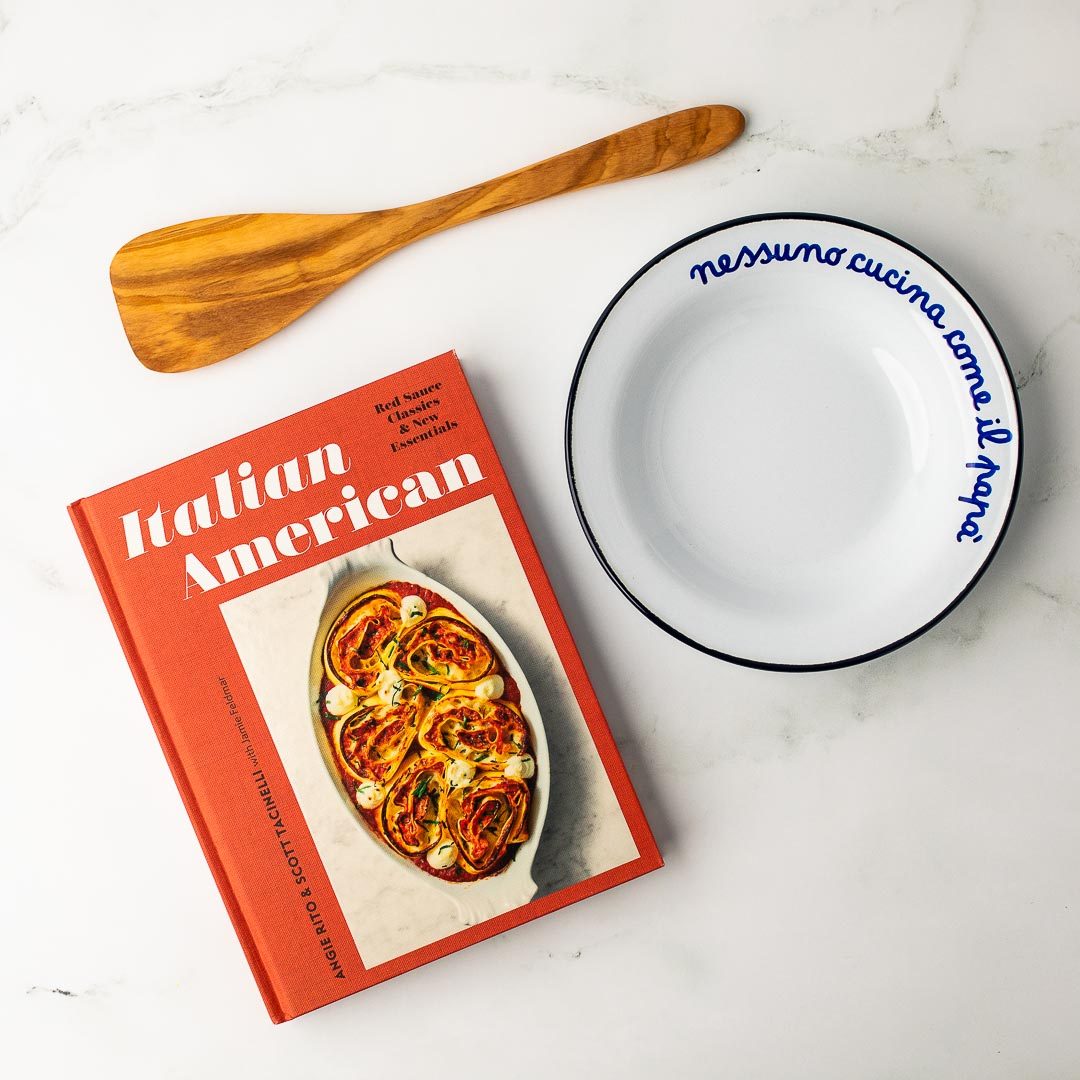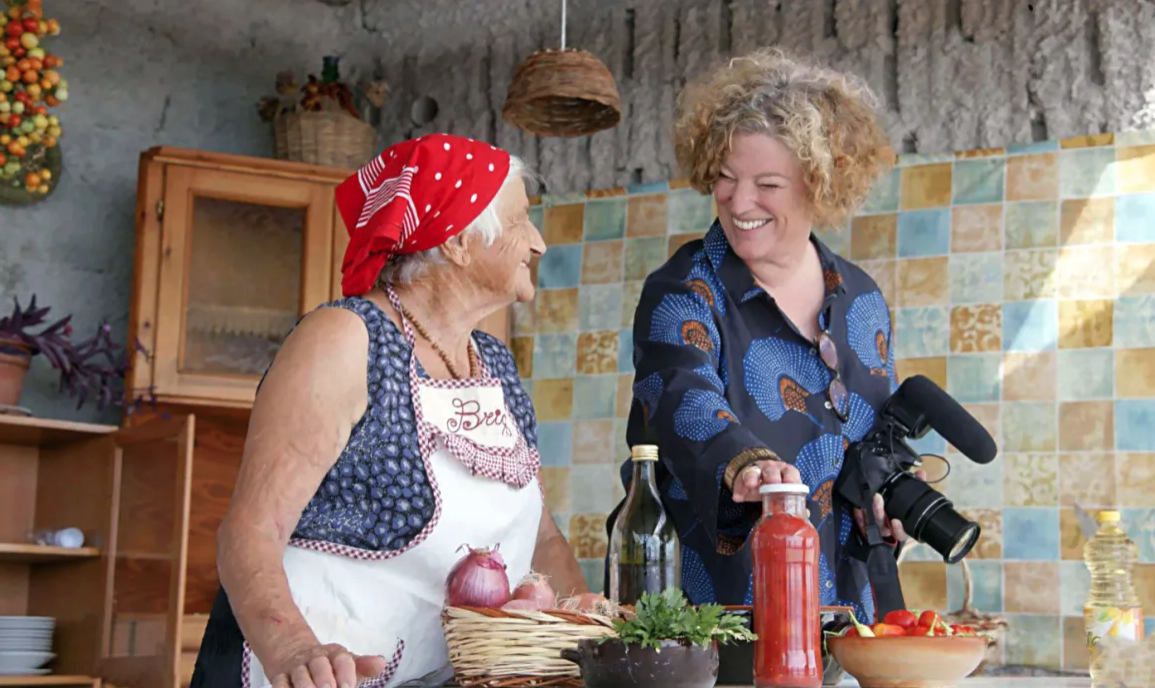
Uncovering the Life of Marcella Hazan through Film
The second cookbook we chose for our Italian Cookbook Club was Marcella Hazan’s Essentials of Classic Italian Cooking. With each book, I promised our members that we would host a virtual event with the author of the cookbook. But for this one, I was stumped. With Marcella Hazan no longer with us, who was I to ask to speak about her life and work?
I began researching. In an effort to learn more about her life, I actually Googled the words “Marcella Hazan documentary.” I thought, “Surely, someone has made a film about her!”
I was surprised to learn that there was indeed a documentary about Marcella Hazan! Except there was one problem: the film wasn’t quite finished yet. I dug deeper and that’s when I discovered the man behind the project, Peter Miller, an award-winning filmmaker who’s helped make films on varying subject matters including baseball, jazz, and the chocolate egg cream.
I called him up and we enjoyed a lively discussion about Marcella. He graciously agreed to join our Cookbook Club for a virtual interview. Below is a snapshot of our conversation.
Interview with Peter Miller
The filmmaker behind the MARCELLA documentary
1. What was the impetus for making a documentary about Marcella Hazan?
I make documentaries about fascinating, inspiring people who have changed our world. I also love to cook. I’ve been making recipes from Marcella Hazan’s cookbooks for as long as I can remember—my wife and I cook from Marcella many times a week. It was during a long evening of making homemade ravioli from one of her recipes that I connected these two passions in my head, and realized that my cooking hero, Marcella, would also be a terrific subject for a film. I phoned her son Giuliano and her husband Victor the next day and they both enthusiastically agreed. Once I started filming with her family, friends, and admirers, my hunch was confirmed: Marcella’s life was cinematic, dramatic, and meaningful—she’s an ideal protagonist for a documentary.
2. What aspects of Marcella’s life are you most excited to share with viewers?
Marcella transformed the way Americans cook and understand Italian food. Before Marcella published her legendary The Classic Italian Cook Book in the 1970s, few people here knew about extra virgin olive oil, Parmigiano Reggiano, and the genius of regional Italian ingredients and techniques. But to me, that’s only part of the story. What I also find intriguing is the amazing personal journey Marcella took on the road to changing how we make dinner. Marcella never cooked until she was married— she had two degrees in natural science and was intending a career as a scientist. What’s more, Marcella’s disability—an injured hand from when she was a child—should have made it impossible for her to manage in a kitchen. But I suspect that these challenges also shaped her character: a tough but loving teacher whose lessons brought joy to people as they came together in the deeply human act of enjoying a meal together.

3. Tell us more about the process of making this film.
MARCELLA is my first culinary documentary. As I began to film, I quickly realized that while the story will be told as a biography, it is also about the act of preparing food. So I relocated our cameras into the kitchens of several of our commentators as they told Marcella’s story with a wooden spoon in hand, stirring or chopping according to one of her iconic recipes. These cooking scenes—some including heartfelt emotion and tears—will be interwoven with interviews, clips from Marcella’s television appearances, and hundreds of archival images. And Marcella’s own voice—whether from historical footage or read by a movie actor as voiceover—will enable our protagonist to take the lead in telling her own story.
4. What has been your favorite part about making this documentary?
I recently was able to travel to Italy to film in places important to Marcella’s life. Shooting from a boat on the canals of Venice has to be the most awe-inspiring experience I can remember in decades of documentary making. We also have done some amazing eating— including consuming some of the dishes that were prepared on set: Victor Hazan’s mock clam sauce, April Bloomfield’s mind-blowing preparation of Marcella’s three-ingredient tomato sauce, chef Shola Ulunloyo’s transcendent rendition of her roast chicken with lemons, Giuliano Hazan making a risotto recipe that his mother taught him as a child, magazine editor Dorothy Kalins preparing glorious Tuscan white beans, and the grower of those beans— Steve Sando of Rancho Gordo—preparing “Marcella Beans” in his Napa kitchen. My curiosity was nourished by the interviews, but my palate was rewarded by the cooking.
5. What challenges have come up in making this documentary?
As is often the case with documentaries, my biggest challenge has been paying for this work. The film is now fully researched and shot. My wonderful filmmaking partner, Amy Linton, is ready to start editing, but we need to raise funds to cover the costs of this part of the effort. We’ve gotten this far mostly with donations from fans and friends of Marcella— including a successful Kickstarter last year. Thanks to everyone who contributed so far! I’m hoping that the community of Marcella enthusiasts will kick in again with tax-deductible contributions to marcellafilm.com/donate.

6. Marcella’s husband, Victor, was influential in her life! What was he like in person?
It’s an open secret that Marcella’s books were written in close collaboration with her husband, Victor. Marcella’s English was never strong enough to write in, and Victor—who fled fascist Italy for New York with his Jewish family when he was young—translated Marcella’s incomparable food wisdom into eloquent English. In a reversal of the usual pattern, where a wife supports her famous husband, Victor was instrumental in shaping the work of his brilliant spouse, while not sharing in the credit—his name never appeared on the cover of her books. Beyond their collaboration as writers, they had a glorious partnership as human beings, a relationship that is at the core of our story. And the camera likes Victor, who, well into his 90s, remains articulate, charming, and charismatic.
7. Any favorite Marcella dishes?
My wife and I are still discovering new Marcella recipes among the hundreds in her books. But we have probably made her Penne with Spinach and Ricotta more than any of her recipes, other than her legendary three-ingredient tomato sauce. It is the most comfortable of comfort foods, and like so many of Marcella’s recipes, elegant in its simplicity.
8. What’s something most people don’t know about Marcella Hazan?
Marcella and Victor were famous for their connection to Italian cuisine. But when they went out to eat, they usually gravitated to Chinese or Japanese restaurants. Indeed, it was at a Chinese cooking class that Marcella’s career as a cooking teacher began (no spoilers here, you’ll have to see our movie to learn more!). Marcella’s passion for Japanese culture was so deep that she became something of an expert at Ikebana, the Japanese art of flower arranging.
9. You interviewed lots of folks for this film. Is there one person that stands out in particular?
I’ve had the honor of filming some famous food people for the film: Lidia Bastianich, Danny Meyer, April Bloomfield, Jacques Pépin, Darina Allen, Mara Martin, and Mayukh Sen, among other luminaries—each soulful and articulate in their memories and insights. The very first interview for my film was with Victor Hazan, whose storytelling skills are unrivaled. I have since interviewed him three more times, including in my kitchen, while he prepared a pasta sauce he and Marcella frequently made early in their marriage. I can’t believe that I consider what I do to be work!
10. What’s next for the documentary?
If we are able to raise the funds we need, I’m hoping to complete the film by the end of the year and release it to the world in 2024, which would be Marcella’s 100th birthday year. I anticipate a high-profile film festival premiere, a release in cinemas, television broadcasts, streaming, and many, many public events, some combining a screening with a great meal. “To put a freshly made meal on the table,” Marcella once said, “is an act of binding intimacy directed at whoever has a welcome place in your heart.” I hope that MARCELLA will reach the hearts of audiences with the story of an extraordinary woman, and a celebration of the power of good food to bring people together and elevate our lives.
This interview was originally featured in our Italian Cookbook Club, where we cook from a different Italian cookbook every two months and hold virtual events with authors and culinary experts.
Post a Comment
You must be logged in to post a comment.




